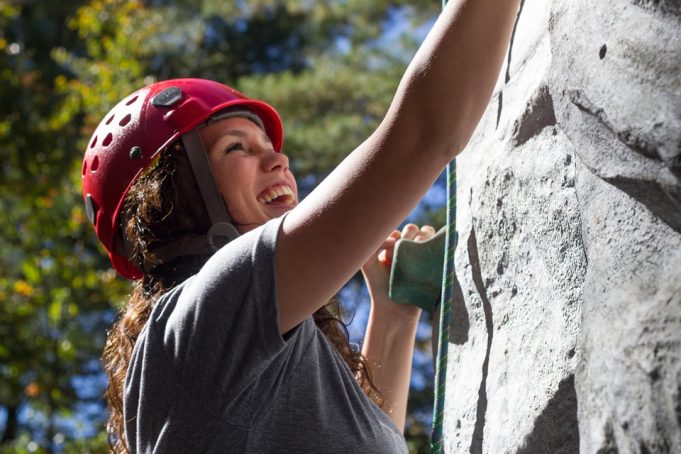The popularity of rock climbing has skyrocketed in recent years. An estimated 9 million Americans now enjoy the sport. Climbing is strenuous and often requires bursts of energy followed by extended periods of sustained endurance. Because so many different muscles and joints are used in rock climbing, it can often take its toll on the body. Many climbers are seeking out the best nutrition advice to keep their muscles and joints in good repair so that they can perform well on the rock. A lot of mixed advice is floating around—here are a few suggestions that have proven helpful to most climbers.
Nothing can replace a well balanced diet. If your Mother tried to instill habits of good nutrition, you need to get back to those habits if you want your body to be in the best shape possible. If you consistently find yourself fatigued, out of energy, and generally don’t feel great, you’re probably neglecting the basics. These are things like lots of fruits and vegetables, plenty of whole grains, a good supply of lean protein, and healthy carbs such as pasta. Seek balance and your body will thank you.
Since climbing is particularly tough on your body, good nutrition should include some strategic supplements.
A robust source of vitamins and minerals is always a great addition to a healthy diet. Multivitamins have long been touted as an excellent daily habit, and for good reason. You can almost always benefit by adding vitamins such as the B vitamins, vitamin D, and vitamin E to your diet because these are often tough to find even when you’re really careful about what you eat. You really can’t go wrong with adding a multivitamin to your diet. They also have the added bonus of being quite inexpensive. For as little as about 3 cents per day, you can make this habit one that you continue throughout your life. If you looked at the overall heatlh benefit associated with such a small cost, you’ll be thrilled with the savings on medical bills that you’ll have in your pocketbook.
There are many different areas of focus in rock climbing. There are climbers who prefer big walls, others prefer short pitches, some climbers stick primarily to bouldering. Each type of climbing requires different strengths and power from different muscles. Big wall enthusiasts need vast stores of endurance, while boulderers need short bursts of muscle power to conquer tough short climbs. Whatever your preferred style of climbing, you would likely benefit from a healthy creatine supplement.
Creatine, an amino acid, is a required fuel for muscles to work well. The problem is, creatine is often depleted shortly after muscle contractions and you’ll often run out when you really need it. This is why it is smart to supply your muscles with extra creatine so that you can rely on it when you most need it. If you simply take about 15 grams of creatine supplement each day, your muscles will have plenty of fuel to help you when you’re climbing.
Before you’re up on the rock in front of all of the gawkers on the ground, be sure you’re prepared to climb well. Don’t neglect good nutrition and you’ll be in good shape to do well.
Article source: Expert Articles


















